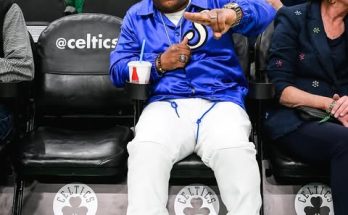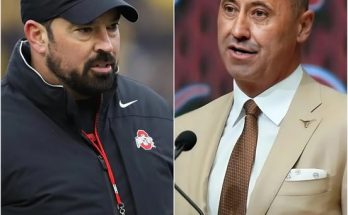The latest ranking from The Ringer has sparked heated debate across the NFL landscape, particularly in South Florida, where the Miami Dolphins’ fan base continues to wrestle with the balance between optimism and realism. Placing the Dolphins’ offense at number twenty-three overall in the league feels jarring to some considering the explosive highlights that defined portions of the 2023 and 2024 campaigns. But when peeling back the layers, the reasons for this conservative ranking become clearer. At the heart of the evaluation are three key concerns: the fragility of quarterback Tua Tagovailoa’s health, the uncertainty surrounding star wide receiver Tyreek Hill, and an overall lack of depth that could prove fatal if injuries strike. Examining each of these points in detail offers a window into why Miami is seen as being built on such a fragile foundation despite its flashes of brilliance.
For the Dolphins, everything starts and ends with Tua. The quarterback position is the most important in the sport, and Miami has tied its fortunes to the left-handed passer out of Alabama. When healthy, Tua has shown he can run Mike McDaniel’s offense with remarkable efficiency, leading the NFL in passing yards for stretches and generating a quick-strike attack that kept defenses on their heels. His accuracy, anticipation, and chemistry with Hill and Jaylen Waddle created one of the most dangerous passing tandems in the league. Yet, Tua’s durability remains a perpetual shadow. Multiple concussions in prior seasons raised serious concerns about his long-term health, with some even questioning whether he should continue playing. While he made it through the most recent season relatively unscathed, the specter of another head injury hovers over every snap he takes. One awkward hit could change the trajectory of not just Miami’s season but Tua’s career. It is this constant risk that leads analysts to downgrade the Dolphins, knowing that without him, the offense is a completely different entity.
Behind Tua, the depth chart does little to inspire confidence. The backup quarterbacks lack the pedigree or experience to run a playoff-caliber offense, and unlike some teams that have invested in strong insurance policies, Miami has chosen to go all in on Tua’s availability. That decision magnifies the health gamble. Should Tua miss time, the Dolphins’ offense risks collapsing entirely, reverting from one of the league’s most dynamic units to one that struggles to stay competitive. It is difficult for analysts like The Ringer to overlook that glaring weakness, and it significantly drags down the overall ranking.
Then there is the Tyreek Hill factor. Hill has been the engine that makes the Dolphins’ attack truly terrifying. His unmatched speed and ability to stretch the field open up everything else Miami wants to do, whether that is hitting him deep, allowing Waddle to work underneath, or using motion to confuse defenses. Hill’s presence forces opponents to adjust their game plan in ways few other receivers in history have done. However, his status for the long-term future of the franchise has become uncertain due to off-the-field issues and the natural realities of age. At thirty years old, Hill is nearing the point where many speedsters begin to lose a step, and while he remains elite right now, the margin for error is slim. Even a slight decline in his explosiveness would dramatically change Miami’s offensive ceiling. Add in the uncertainty surrounding potential disciplinary matters and it is understandable why evaluators hesitate to project stability. An offense so reliant on one individual weapon is inherently fragile.
Jaylen Waddle, of course, provides another dynamic option, but he too has battled nagging injuries. While he remains one of the league’s top young wideouts, he has yet to prove he can shoulder the load as a true number one if Hill is diminished or unavailable. Beyond Hill and Waddle, the Dolphins’ receiving corps lacks proven depth. The supporting cast is filled with role players and untested options rather than established contributors. In an era where successful offenses often boast three or even four legitimate receiving threats, Miami’s thinness is a notable vulnerability.



